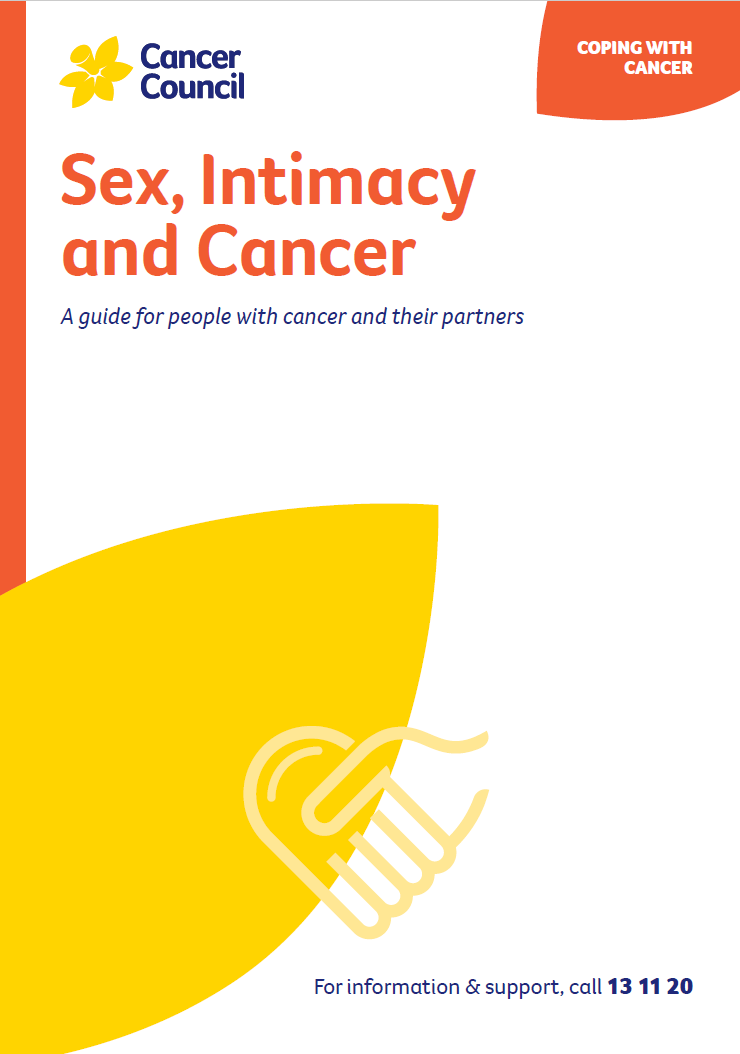- Home
- About Cancer
- Managing side effects
- Fertility and cancer
- Reproduction and fertility
Reproduction and fertility
Reproduction is the way we produce babies. Knowing how your body works may help you understand how fertility problems happen.
Learn more about:
- How reproduction works
- Factors that affect fertility
- The female reproductive system
- The male reproductive system
How reproduction works
The female and male reproductive systems work together to make a baby. The process involves combining an egg (ovum) from a female and a sperm from a male. This is called fertilisation.
Role of hormones
Hormones are substances produced naturally in the body. Hormones control many body functions, including how you grow, develop and reproduce.
- Oestrogen and progesterone, often called female sex hormones, are produced in the ovaries. These hormones control the growth and release of eggs (ova), and the timing of menstruation (periods).
- Androgens are often called male sex hormones. The major androgen is testosterone, which is produced mainly in the testicles and helps the body make sperm. Most people produce some testosterone, although generally men make more.
Ovulation
Each month, from puberty (sexual maturation) to menopause (when periods stop), one of the ovaries releases an egg. This is called ovulation.
Pregnancy
The egg travels from the ovary into the fallopian tube. Here it can be fertilised by a sperm. Once the egg is fertilised, it implants itself into the lining of the uterus and grows into a baby. After the egg is fertilised by the sperm, it’s called an embryo.
Menopause
As females get older, hormone levels fall to a level where the ovaries stop releasing eggs and periods stop. This is known as menopause. This is the natural end of the female reproductive years and it usually happens between the ages of 45 and 55.
Factors that affect fertility
Some of the common factors that affect fertility include:
| age | fertility starts to naturally decrease with age |
| weight | being very underweight or overweight |
| smoking | both active and second-hand smoking can harm reproductive health |
| alcohol | drinking too much alcohol may make it harder to conceive |
| medicines | some medicines and cancer treatments affect fertility |
| other health concerns | endometriosis, fibroids, pelvic disease, certain hormonal conditions or cancer. |
See Key questions to learn more about how cancer affects fertility.
Transgender, non-binary or intersex?
This information has been developed based on evidence in people born female or male.
If you are non-binary or a trans person or person with an intersex variation, this information may still be relevant to you if you have ovaries, a cervix and a uterus, or testicles and a penis. For information specific to you, talk to your doctor.
Call Cancer Council on 13 11 20 to ask for information about the specific cancer needs of LGBTQI+ people.
For fertility information specific to your situation, talk to your health care team.
→ READ MORE: The female reproductive system
Podcast: Sex and Cancer
Listen to more of our podcast for people affected by cancer
More resources
Dr Sally Reid, Gynaecologist and Fertility Specialist, Obstetrics and Gynaecology (Adelaide) and Royal Adelaide Hospital, SA; Dr Sarah Ellis, Clinical Psychologist and Postdoctoral Research Fellow, Kids Cancer Centre, Sydney Children’s Hospital and UNSW, NSW; John Booth, Consumer; Hope Finlen, Haematology Nurse Consultant, Gold Coast University Hospital, QLD; Dr Michelle Harrison, Medical Oncologist – Gynaecological cancers, Chris O’Brien Lifehouse, NSW; Melissa Jones, Nurse Consultant, Youth Cancer Service SA/NT, Royal Adelaide Hospital, SA; Dr Violet Kieu, Clinical Director, Melbourne IVF and Fertility Specialist, The Royal Women’s Hospital, VIC; Prof Declan Murphy, Consultant Urologist, Director – Genitourinary Oncology, Peter MacCallum Cancer Centre and The University of Melbourne, VIC; Stephen Page, Family and Fertility Lawyer, and Legal Practice Director, Page Provan, QLD; Ann Retzlaff, 13 11 20 Consultant, Cancer Council WA; A/Prof Kate Stern AO, Fertility specialist, Gynaecologist and Reproductive Endocrinologist, Royal Women’s Hospital and Melbourne IVF, VIC; Georgia Webster, Consumer.
View the Cancer Council NSW editorial policy.
View all publications or call 13 11 20 for free printed copies.

